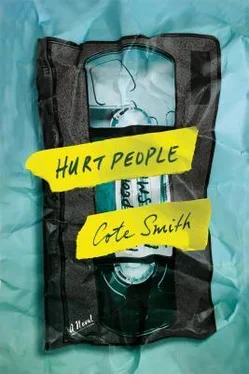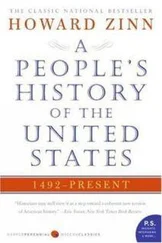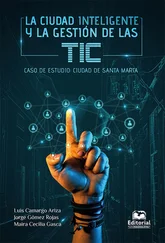“Official?” my brother said. “That guy’s wearing a tank top.”
“Some other time,” my dad said, and put his hand to his gun, as if to double-check it was still there. He often did the same thing with his wallet, tapping his back pocket to make sure it hadn’t been picked by a thief.
“Please,” my brother said, “just one round.”
My dad said no, asked my brother if he was hard of hearing. My brother dropped his earmuffs on the ground. He turned around and muttered.
“Excuse me?” my dad said.
“You heard me,” my brother said, his words a little louder.
“Try me again.”
“I said this is stupid.”
“And why is that?”
“Because … they’re shooting paper.”
“That’s a good thing.”
“Yeah, but you’re not even gonna shoot. You’re just gonna stand around and tell everyone else what to do.”
“That’s my job.”
“Then why did you bring your gun?” my brother asked.
My dad looked down at the gun on his side, to where his hand was resting, and it was obvious that he didn’t have an answer. “I just thought you’d want to see what your old man does. That’s all.”
“Yeah,” my brother said, and he turned away from my dad, so only I could see his smile, “but you don’t do anything.”
My dad’s face hardened, and he looked at me as if I could explain why my brother was acting this way. But I didn’t know what to say. I had questions of my own.
An officer called to my dad. They were ready to start the second round. “Just sit down and shut up,” my dad said to my brother. “Next time you can stay at your mother’s.”
On the way home my brother sat in the back of the cruiser with me, and our dad kept glancing at us in the mirror, like we were a couple of criminals itching to escape.
“I have to run you home,” our dad said. “I’m technically on duty now, so…” His voice trailed off as we came to a four-way stop. I knew where we were, and knew that if we went left, it would lead us to Limit Street, which we could hop on and take to our mom’s. We went straight. “You know,” our dad said, “your mother’s told me some things about you. How you’ve been acting.” He was talking to my brother, who shook his head and rolled his eyes, but didn’t say anything. “Hey,” my dad said, “I’m talking to you.”
My brother didn’t respond. When it became clear he wasn’t going to apologize without prompting, or admit to any wrongdoing, our dad didn’t force him. He flipped on the police radio, and the car filled with garbled voices, battling back and forth. I stared out the window and tuned out the radio as best I could, until my thoughts were interrupted by my dad’s voice. He had the radio to his mouth and had joined the conversation. He told the woman to show him responding, but didn’t say responding to what.
My brother ceased his silent treatment. “What was that?”
“Nothing,” our dad said. “Some idiot’s trespassing. I’ve got to run by.”
“Where?”
“The battery factory.”
The battery factory was one of the biggest buildings in Leavenworth that wasn’t a prison or a grain elevator. It was more than five stories tall, and painted a grassy green that had faded over time, after the factory was shut down and everyone lost their job. We’d driven by it only once or twice in my life, but each time we did our dad would shake his head and say what a shame. To my brother, the factory was an unexplored world, one of the few places big enough to house his imagination.
“Are we going?”
“I am,” our dad said. “I’ll drop you boys off first.”
My brother grabbed the barrier in protest. “No way. Take us with you.”
Our dad told him no. He wasn’t taking his kids to a crime scene. Besides, it was nothing exciting. Probably just a couple of lonely-hearted high schoolers looking for a dark place to sneak off to.
“We won’t do anything,” my brother said. “We’ll stay in the car and watch, won’t we?” He nudged me until I said yes. “We just want to see.”
When my dad didn’t shoot him down right away, I knew my brother was onto something.
“Oh, I get it,” our dad said. “So now what ye olde dad does is cool? Is that it?”
We stopped and a red light colored my brother’s wide smile. “We’ll be good,” he said. “I promise.”
Our dad looked in the rearview mirror. I couldn’t see his mouth, but I saw his face rise, his eyes beam. He took a sharp turn, veering off our normal course, taking a side street off Main and up onto Marion, a street I’d never heard of.
It was dark when we pulled up. The streetlights weren’t alive. There were no cars in front of the factory, or dusty bikes lying in the gravel. Whoever trespassed had traveled by foot. Our dad aimed the headlights at the front doors, chained shut with a dungeon lock. It felt like we’d stumbled into a movie someone else had rented. Our dad was the cop in the opening credits, the one who was just doing his job, and everyone knew would get it. Wrong place, wrong time , we would think, right before a monster snatched him from the rafters. I glanced at my brother, who was sitting on his feet trying to get a better view. I didn’t remember a single movie where the worthless cop brought his boys.
“Stay put,” our dad said. “I’ll be back in a second.”
He rolled down our windows a little more than halfway and stepped out of the car. He didn’t approach the chained door with his hand on his holster, like I thought he would. He walked up hands free and tried the doors, held fast by the chain. I kept waiting for the worst possible thing to burst through the doors, but the night remained quiet. Our dad stepped back from the building and looked up, as if the monster had scaled the walls and broken through one of the dirt-caked windows. I pictured the monster bashing the glass with a rock, not his fist, and suddenly the monster became the burglar. A criminal. And because I didn’t know what the Stranger looked like, never got a good look at his face on the tape, in my mind I made Chris play the part.
Our dad took one last look at the police cruiser, at us, and ducked out of the headlights, into the darkness. I heard my brain shouting the same things it shouted when we watched a bad movie. The things I never said out loud, because if I did my brother would tell me to shut up. They can’t hear you , he would say. They’re already dead.
For a few minutes, we did as we were told. For a few minutes, we sat there and listened. But my brother grew bored. He stuck his head out the window to see if he could see anything. He wormed half his body out, and announced he was leaving. That he was going to help our dad and that I should stay here.
“Don’t,” I told him. “You know what’ll happen.”
My brother ignored me and slithered out the window. “Dad needs backup,” he said. “If you see or hear anything, the radio’s right there.” He poked his head through the window, and his arms dangled to the side, like he was seated at a guillotine, waiting for the blade to fall. “Now remember what Mom always says,” he said, a sick grin stretched across his face. “Don’t talk to the Stranger.”
And with that, he left. He ran in the same direction as our dad, the gravel crunching under his feet. Soon I heard nothing, and the night opened before me, into what could have passed as an eternity. I tried my best to hide behind my dad’s seat, glad at first that he had left the headlights on, a little night-light for this new and scary world. But as the minutes ticked away and neither my brother nor my dad returned, I wondered if I would be better off without the lights. If it would be better for me not to see whatever was coming. Still, I didn’t close my eyes. I sat there. I watched the yellow oval the headlights made. Cover the front, I told myself. You can do that much.
Читать дальше












